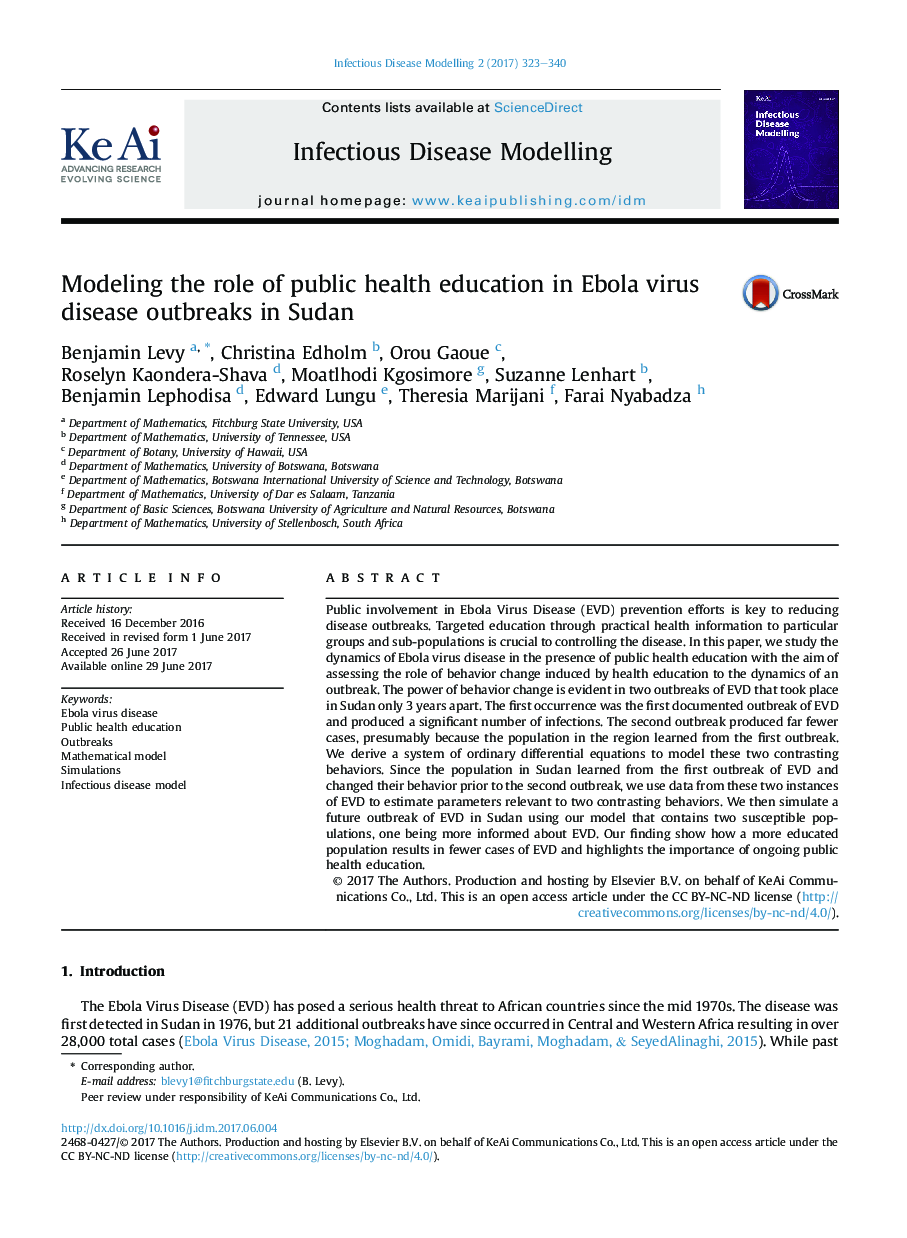| Article ID | Journal | Published Year | Pages | File Type |
|---|---|---|---|---|
| 5662865 | Infectious Disease Modelling | 2017 | 18 Pages |
Public involvement in Ebola Virus Disease (EVD) prevention efforts is key to reducing disease outbreaks. Targeted education through practical health information to particular groups and sub-populations is crucial to controlling the disease. In this paper, we study the dynamics of Ebola virus disease in the presence of public health education with the aim of assessing the role of behavior change induced by health education to the dynamics of an outbreak. The power of behavior change is evident in two outbreaks of EVD that took place in Sudan only 3 years apart. The first occurrence was the first documented outbreak of EVD and produced a significant number of infections. The second outbreak produced far fewer cases, presumably because the population in the region learned from the first outbreak. We derive a system of ordinary differential equations to model these two contrasting behaviors. Since the population in Sudan learned from the first outbreak of EVD and changed their behavior prior to the second outbreak, we use data from these two instances of EVD to estimate parameters relevant to two contrasting behaviors. We then simulate a future outbreak of EVD in Sudan using our model that contains two susceptible populations, one being more informed about EVD. Our finding show how a more educated population results in fewer cases of EVD and highlights the importance of ongoing public health education.
